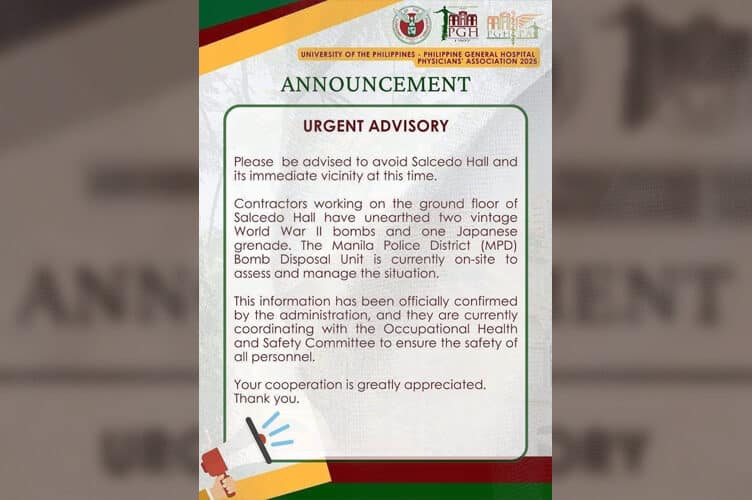MILLIONS of people list down a variety of New Year resolutions to spark positive changes in their lives, and that includes improving their financial well-being.
For 2024, several of them are aiming to save money for many different reasons. It could be for a very important event in their lives, for travel, for school expenses, for a business, for other essential purchases, or simply, for the future.
As everyone knows, saving up means not spending a portion of their money on their current expenditures and putting it somewhere else safe such as a deposit box or a bank.
But there’s something more about it that they need to understand other than just keeping their money away from their sight. This is why Francis Diaz, president and co-founder of Luna Securites, Inc., is here to explain those to them, especially the ones who hope to enhance their saving habits.
Saving money alone is ‘not enough’
There are plenty of reasons why a person should start saving up. It could help them attain financial freedom, relieve financial stress, meet their life goals, and prepare for unforeseen circumstances, among others.
Saving money is indeed very important, but that alone is not enough when someone is preparing for the future, according to Diaz.
“Saving money, saving cash, putting into the bank or putting it in I don’t know your safe or something, that is actually not enough. In fact, saving money on its own is actually kind of useless,” he said.
How can it be pointless? The financial expert said that it is because of inflation, or the rise in prices of goods and services that results in the reduction of a person’s purchasing power.
“What money actually buys you is purchasing power: the ability to buy things, goods, services things like that. And the problem with keeping money in cash, saving money, is that over time your ability to purchase things goes down,” he said.
Diaz said a previous study they conducted found that the P1,000 cash a person kept in 2013–which could be used to purchase a P1,000 worth of products that year–could now only buy a P700 worth of items today.
He said that this translates to a 30 percent reduction in the individual’s ability to purchase things today, as the prices of goods and services soar over time.
Invest
This is why people need to invest their money for it to grow in value, Diaz pointed out.
“Savings is definitely good, you have to get on that as soon as quick as you can. But more importantly, you have to invest your money,” the financial expert said.
“You have to buy assets, that’s actually the more important part. Kumbaga, yung savings, ‘yun yung bigas pero hindi mo naman pwede kainin yung bigas, kailangan mo muna isaing and yung pagsaing na yan is actually the process of investing, the process of buying assets,” he continued.
According to Diaz, investing means putting your money into financial products like bonds and stocks, but people don’t necessarily have to focus only on these to grow their wealth.
They can invest their money in things they are interested in such as jewelry, art, and even shoes.
“Specifically for Gen Z, find something where you’re comfortable, find something that you feel works for you as well. So the key is to save, but that’s just one part. The other part is actually to make that money work,” said Diaz.
“You have to be able to buy assets and invest in things that hopefully will create enough return for you, so that over time it will be higher than inflation,” he continued.
Remember ‘5Cs’
To better prepare for the future in terms of financial aspects, Diaz shared the five “Cs” that people need to take note of when improving their financial well-being.
The first C would be “curiosity.” The financial expert stressed the importance of being curious and learning many different ways to improve their financial well-being.
“There’s not one way to fix your personal finances. There’s not one way to create wealth. There’s not one way to provide financial care. Many circumstances, many people, all unique, but what is constant is the ability to learn and to be open to learning,” he said.
“So read, observe, talk to people, listen to people, find people that you feel can provide some good lessons and mentorship to you when it comes to these things. Learn, learn, and learn. That’s the most important,” he added.
The second C is to “compute.” Computing finances is “very, very critical” because this is the “starting point” of saving up.
“I’m sure may iba diyan na medyo ninenerbyos na. May math eh. But you don’t need to be a math genius, basic math only,” he said.
Diaz said that people only need to know first their essential purchases every month such as rent, food, transportation, and even medical expenses to be able to find out their baseline.
“You need to be able to find what your baseline is. And from there you can work on trying to fill in that baseline and exceed that baseline. Okay so compute your expenses,” he noted.
Once they have computed their monthly expenses, people need to provide for these expenditures by means of the third C, which translates to “cash flow.”
Diaz said that there are many ways to get cash flow, and the most basic one is the salary that they receive monthly. They can also resource it from their side hustles or other businesses.
“[It’s] very important that you are aware that you need to constantly monitor your cash flow to make sure that one: you are able to take care of your expenses that you computed, and two: you are able to exceed them over time,” he said.
He continued, “Hindi pwedeng pantay sila forever, kailangan lumalaki.”
This now leads to the fourth C, which means “capital.” A person would know that they are already creating capital for themselves once their money is already earning money through investing or assets gathering.
“‘Pag lumalaki na yung agwat nung kinikita mo at nung inii-spend mo, hopefully positive yun, ‘pag lumalaki na, guess what Gen Z? Kapitalista na kayo, ‘di ba? You make money work,” Diaz emphasized.
When their capital makes gains, this means that their earnings are already on the fifth C or “compounding.”
“[This] is where the magic happens,” said Diaz. “That simply means that the money that you make from your money also makes money.”
This will then become a virtual cycle of making money from their cash flow, setting aside a portion of it to invest, creating capital, and reinvesting their money.
“The money that you take aside creates a capital on its own and then that capital you reinvest it again and again. That’s how you truly and really create wealth,” Diaz said.
How useful was this post?
Click on a star to rate it!
Average rating 0 / 5. Vote count: 0
No votes so far! Be the first to rate this post.
We are sorry that this post was not useful for you!
Let us improve this post!
Tell us how we can improve this post?









